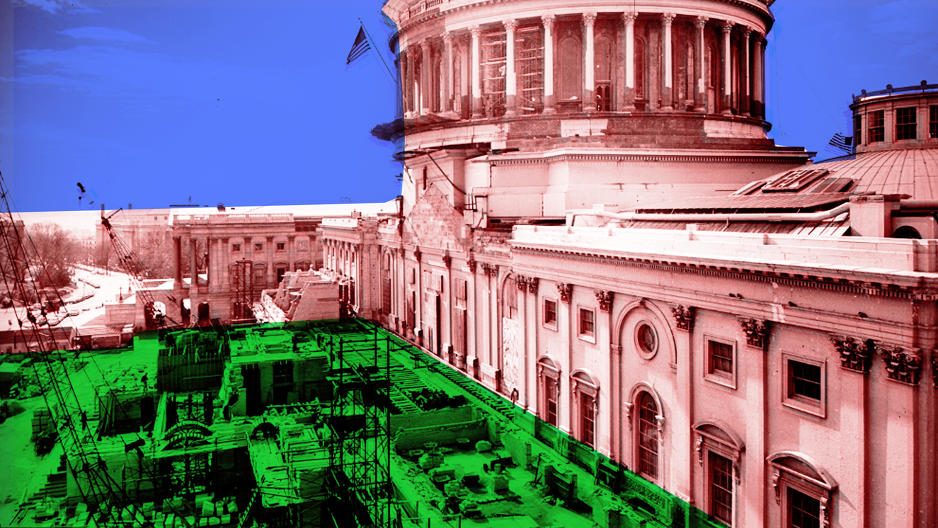Show Up. Dive In. Stay At It: How PopVox Can Help You Be More Politically Effective
Following the events of Tuesday, November 8, many citizens who were disappointed with the election results began to express a desire to become more active politically, and more effective in that activism. If your Facebook feed looked anything like mine, it was filled with questions, comments, and pleas about what to do next. A much-circulated post in my network (and possibly yours) urged people to call New York Senator Chuck Schumer, imploring him to protest the appointment of Steve Bannon as chief strategist to Donald Trump.
Marci Harris saw that post in her own social network in California. And while it didn’t bother her at all—she likes to see ordinary citizens expressing themselves politically—she knew it was slightly misinformed. Harris, who worked on the staff of former California Democratic Representative Pete Stark, knew that Senate Minority Leader Chuck Schumer really only answers to his own constituents in New York. She also knew that Bannon’s appointment would not come before Congress and was an internal White House matter. “There’s certainly utility in making your feelings known to your own representatives,” she says. “But many were acting as if Bannon needed to be confirmed by the Senate, and that was just not the case.”

Helping ordinary citizens become savvier about what sorts of actions are likely to have an impact on elected officials is what Harris does. Several years ago, she founded PopVox, an online platform that tracks legislation and allows people to express support or opposition digitally. (She’s made Fast Company‘s Most Creative People list more than once.) Rather than ineffectually tweeting your representative in Congress, PopVox encourages you to register through the site and send certified communications to your representatives that support or oppose specific pieces of legislation.
For plenty of Americans, the presidential campaign and election made 2016 one of the most politically charged years in recent memory. But for PopVox, it was mostly a year of rebuilding the site’s technology following a $1.3 million “philanthropic investment” from LinkedIn’s Reid Hoffman. (Though mission-driven, PopVox is currently a for-profit company. “The right model for civic tech for public good doesn’t exist yet” in this country, according to Harris.) Since PopVox focuses on legislation and governing—as opposed to elections—Harris is hopeful about 2017. “We’re expecting this to be a growth year,” she says.
Now that Congress is back in session, state legislatures are meeting, and our new president is issuing sweeping executive orders, it may be time to get acquainted with PopVox. Not only can you track national legislation that interests you, but a new feature of the site also allows you to follow laws being made on the state level. Harris feels that a new focus on state policy making is likely to be a major trend in the near future. Republican messaging has long called for returning power to the states, and that seems as good a bet as any for many heavily blue states under a Donald Trump administration.
In this tumultuous political moment, Fast Company caught up with Harris to learn more about trends she sees in politics, technology, and how the two interact.
Right after the election, I saw such a flurry of people wanting to be active and effective in their advocacy, and it seemed like they should be aware of PopVox.
Marci Harris: It was kind of a weird time because PopVox only works when Congress is in session. So it was a funny time to see all this post-election energy, but not to be able to ride the wave. We needed the 115th Congress to start and for bills to start coming into our system. It’s important for energy to be channeled in a way that’s both effective and sustainable. If it’s just scattershot activism, with a lot of energy but not a lot of impact, people are going to burn out from that.
Since PopVox’s founding in 2011, users have been able to track legislation, and express opposition or support to their representatives in Congress. Now, though, you’ve built a new feature: People can track legislation coming out of all 50 states.
We’ve been asked to do a state version ever since we started. So much policy is happening at the state level that’s actually more impactful on people’s lives. In 2014, for instance, there were approximately 24,000 bills passed at the state level, compared to about 300 in Congress at that time. And yet there are very few resources actually covering the state level, with fewer state house reporters. It’s the great unobserved level of government.
I don’t think most people think a lot about state legislatures or how they work.
I’ve learned so much trivia about state government. There are anomalies. Nebraska has a unicameral government. New Hampshire is one of the smallest states, but it has the most lawmakers, 400 members of the New Hampshire lower house. There’s some crazy differences between state legislatures. Some stay in session year-round, some are in session for a month. Some have full-time paid lawmakers, others get $12,000 a year. In Texas, it’s only $7,200 a year.
How are you feeling about democracy right now overall?
Our systems have certainly changed because of technology. Now it’s really up to us to use this technology to make sure people are better informed. I think a functioning democracy depends on good information, on people paying attention. For the most part, we at PopVox don’t do original reporting, we curate and link out to the work of others, like the amazing Capitol Hill press corps, though we do have a team of interns right now attending all confirmation hearings to give people a taste of what it’s like to sit in the room and listen to questions. A big theme for us is to make the legislative process more accessible, less intimidating, more welcoming. It can feel so difficult even to take the first step. I remember when we were having our first conversations about PopVox, we said we wanted it to feel the opposite of these big intimidating marble staircases with huge columns.
I feel like a lot of people want to be more politically active, but don’t quite know where to start. It’s like resolving to go to the gym.
That’s a good way to put it. Especially right now with things moving so quickly, everyone feels overwhelmed, even veteran politicos. We at PopVox try to help with that through our weekly emails, explaining what’s ahead in Congress on Monday and wrapping up the week on Friday. Our readers, both in D.C. and across the country, tell us that it helps them get a handle on all that is happening, and they appreciate a tone that is neutral, not clickbait or looking to promote a position. We’re working to make those more personalized and relevant, especially as we incorporate what’s happening at the state level. For those of us who have spent years trying to get people engaged, we recognize that something special is happening right now. It’s important to have productive, effective ways for this attention and enthusiasm to sustain over the long term.
PopVox’s core product tracks Congress. A major question now is how much power Congress will actually have as a check on Trump. What is your feeling?
We need to set high expectations for our elected officials. Congress has hobbled itself in the past few decades, slashing its own resources and undercutting public trust through shutdowns and partisan bickering. But we need it to be strong now. People should put pressure on Congress and hold it accountable. They should also tell it when it’s doing something right. Members of Congress are human. They care and are moved by the stories they hear and the input from their constituents. They want to do a good job. Sometimes that requires adhering closely to the will of their constituents, but sometimes that requires a personal judgment about what is best for the country as a whole. Often, especially in the Senate, it requires nuance and compromise. This new era of political activism will require a deeper level of understanding that preserving what is important in the long run sometimes requires working with people you disagree with in the short term. I am optimistic that both the Congress and the people will put in the work and rise to the challenge.
This interview has been condensed and edited.
Fast Company , Read Full Story
(18)














